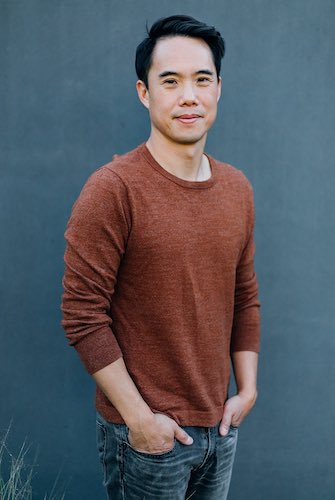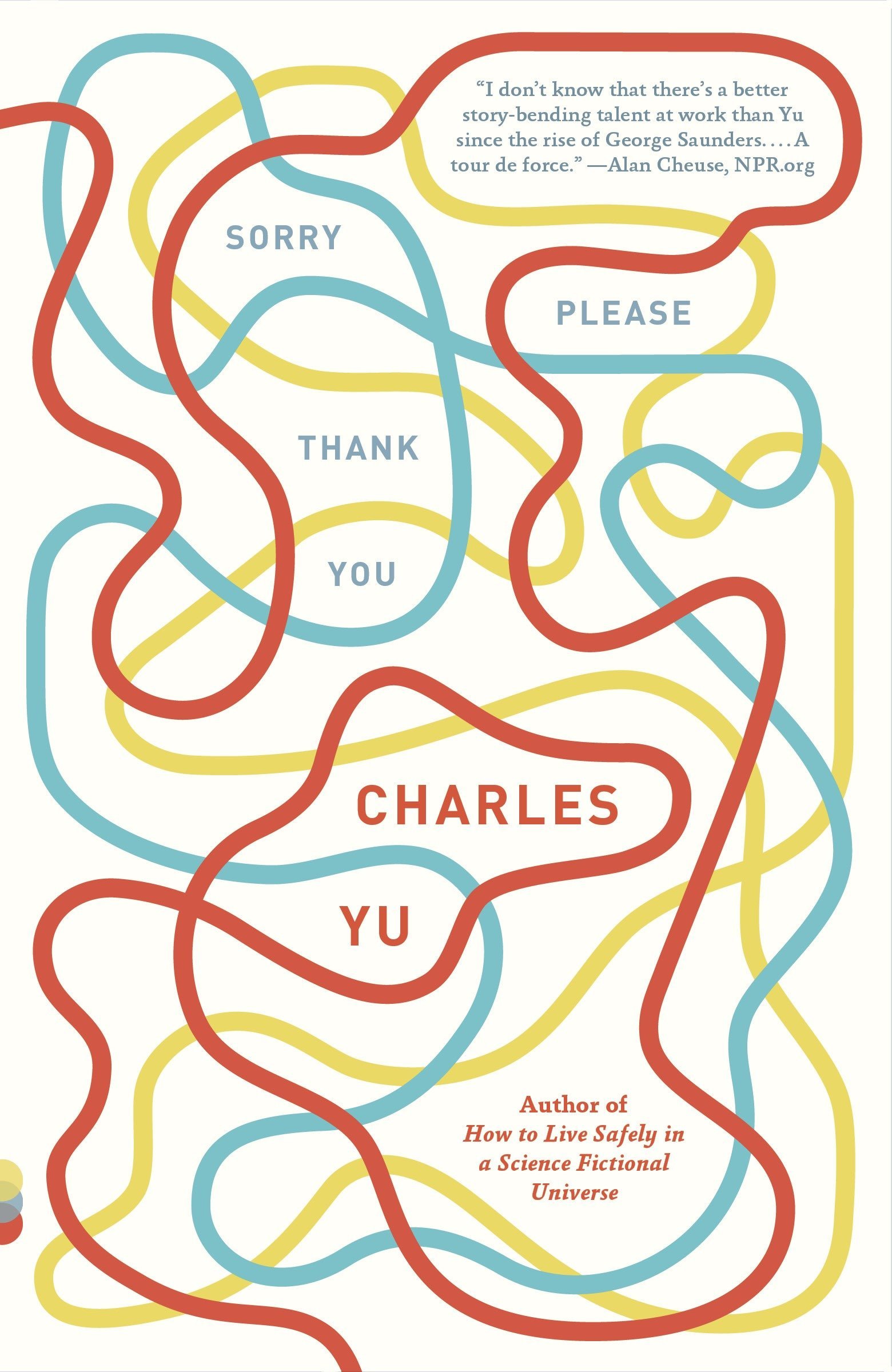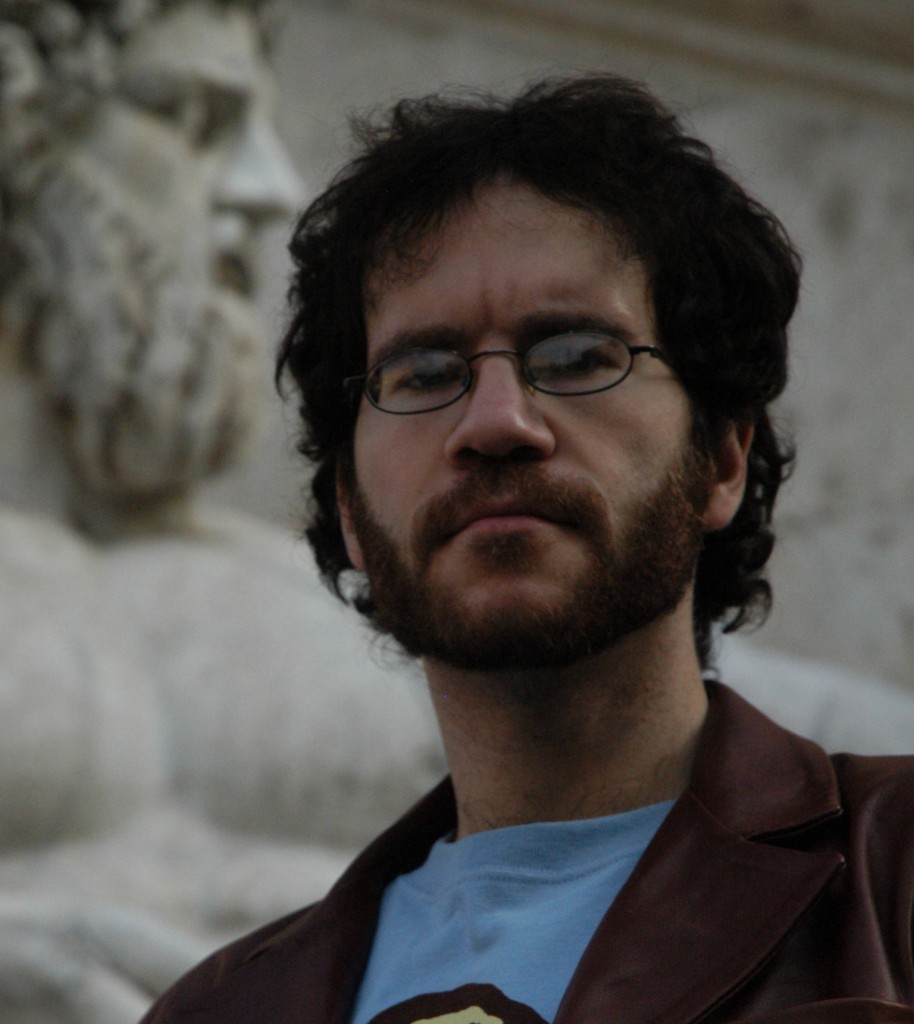
Tom Bissell
I met Tom Bissell in 2007 when we both lived in Rome. I had read his story collection God Lives in St. Petersburg and liked it, and as we became friends I couldn’t understand why this guy would want to come down from his mountain to hang out with me. He was the first writer I had met, and because I saw such a clear connection between the man and his prose—both are generous, intellectually rigorous, playful, honest—Tom became the source of one of those great revelations of the obvious. There’s a man behind the curtain. He’s really into Guitar Hero.
Tom Bissell is a frequent contributor to publications including Harper’s, The New Yorker, and The Believer. He has earned numerous awards and his stories have appeared repeatedly in Best American Short Stories. His acclaimed works of nonfiction include The Father of All Things: A Marine, His Son, and the Legacy of Vietnam; Extra Lives: Why Video Games Matter; and Magic Hours: Essays on Creators and Creation. He’s currently finishing a travel book about the tombs of the Apostles. On March 27, video gamers will line up for the release of Gears of War: Judgment. Tom co-wrote the script.
A few weeks ago, we reconnected over Skype to talk about video games, questions of genre, and a writer’s confidence. Here’s the second part of our conversation.
Interview:
James Pinto: I was reading “The Theory and Practice of Not Giving a Shit,” your essay in which you visit one of your mentor figures, Jim Harrison. You write:
At the beginning of my writing career, a decade ago, the “old way” still seemed an available, even noble, path for the young writer to try to follow. The literary world in which Harrison came up, and of which I caught the very tail end, has now been tectonically ripped apart. How to navigate the adrift plates of this new literary world is not yet apparent—not to me, and not to most of the thirty- and forty-something writers of my acquaintance. In this respect, visiting Harrison was not unlike climbing to the top of a mountain in search of a wise man. You want him to say the old way is still there because he is still there.
I am a youngish writer. You’re a sort of a guru on the mountain for me. So, first: is the “old way” entirely gone?
Tom Bissell: No. I’ve taught, right? And I don’t say this as someone who’s anti-MFA program, anti-writing program, anti-teaching, or any of that. But I do think that what Harrison represents is someone who decided to live his life outside the primary acquaintance of publishing and academics.
And that’s what he says. “Someone has to stay outside.”
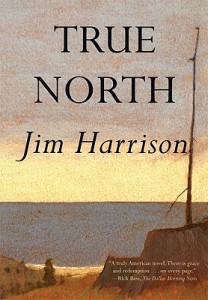 Someone has to stay outside. That was a conscious decision he made. And you can see it. His work breathes with all these characters and people, the kinds of people you don’t typically read about in literary fiction.
Someone has to stay outside. That was a conscious decision he made. And you can see it. His work breathes with all these characters and people, the kinds of people you don’t typically read about in literary fiction.
It’s hard to make a living as a writer today. It’s been hard for me the last few years, at least. It’s hard for a lot of the younger writers I know. We basically live in a literary Colombia right now, where there’s a small middle class. . . . Actually, Colombia’s probably not the best example; Colombia’s actually getting quite a bit less stratified. But there’s a large number of people whose primary means of survival is academia, and then a very small number of people who get to live off their writing, and then a tiny number of people who get to live off their writing phenomenally well. Writing the Jim Harrison piece was me realizing that if I can make a living only as a writer—if I can—then that’s what I should do.
My advice for a young writer like you is to figure out something that’s not trying to get a teaching job. Do not get a teaching job. Do not pursue it. Just don’t. I just don’t think it makes for happy writers. A teaching job is awesome if you’re in your late thirties or your forties and you want to go back and do it, but trying to hit that AWP grind of finding a job, writing your novel in between a shitload of classes and departmental service stuff—very few people I know who do that have lives and careers that I look at and think, That’s the way to do it.
But that could be due to the fact that I’m apparently temperamentally averse to that kind of life. I mean, it would probably be really nice to have health insurance, and a house, and a family, none of which are things I have. But my advice is to keep your life extremely simple. Find either a person who understands you perfectly and is willing to put up with all the crazy things that a writer has to do, or conversely be with absolutely no one at all—those are the two options: perfect understanding or no one, and I mean that—and figure out a way to get out into the world and a way to bring back stories that you are uniquely well situated to tell. If you’re talented and you’ve seen stuff and you have things to say that are not being said by anyone else, I have faith that there is room in the marketplace, that there’s an appetite for that kind of stuff. Figuring out how to make that possible means simplifying; it means cunning; it means a certain degree of cavalier mercenary material-mongering; all that stuff is necessary to start making your way as a writer. Or you just write a terrific novel, get a great agent, and sell it for a lot of money when you’re thirty-two years old. That can happen too, but that’s less and less likely in my experience.
So then is the “new way” the MFA industrial complex?
You know, that kind of seems like the “old way” too at this point, doesn’t it?
So what is the “new way”?
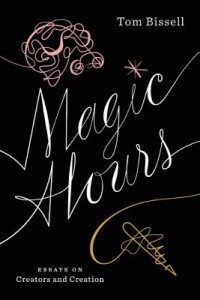 I have no idea. Twitter, I guess. Creating an audience through social media that you then somehow turn into an audience and money. And all that stuff seems antithetical to the values of real fiction to me. I couldn’t do that. I’m sure there are some really fine writers who are doing that now that are in their early twenties and are figuring out how to make that work. Publishing is not in great shape. Magazines are not in great shape. All the vessels through which traditional literary experience have been transmitted to us are either fading, weakening, or gone. But, there’s still tons of great literary magazines. I write short stories for magazines that have pretty small readerships, with some crazy faith that it means something to publish a story that maybe 300 people are going to read. Nobody writes stories to make money, obviously. It’s such a miracle that you ever can make money from something like a short story. So figure out a way to leverage your interests and your ability to write into something that can make money, and then design your life around giving yourself the time and imaginative space to write the thing that you really want to write.
I have no idea. Twitter, I guess. Creating an audience through social media that you then somehow turn into an audience and money. And all that stuff seems antithetical to the values of real fiction to me. I couldn’t do that. I’m sure there are some really fine writers who are doing that now that are in their early twenties and are figuring out how to make that work. Publishing is not in great shape. Magazines are not in great shape. All the vessels through which traditional literary experience have been transmitted to us are either fading, weakening, or gone. But, there’s still tons of great literary magazines. I write short stories for magazines that have pretty small readerships, with some crazy faith that it means something to publish a story that maybe 300 people are going to read. Nobody writes stories to make money, obviously. It’s such a miracle that you ever can make money from something like a short story. So figure out a way to leverage your interests and your ability to write into something that can make money, and then design your life around giving yourself the time and imaginative space to write the thing that you really want to write.
On that line of thought: I’m not on Facebook anymore. I remember when I left Facebook you had a crazy number of friends. I wonder whether that’s part of you being hail-fellow-well-met Tom Bissell. Or is that a necessary part of the public persona of being a writer these days?
I’ve often contemplated turning off my Facebook. The only reason I keep it on is that I’ve gotten so many nice notes from people there. And it feels good to know that if someone finds my stuff and they like it that they can get in touch with me and let me know. But I’m not on Twitter, and I’ll never be on Twitter. I don’t have my own website. I don’t have any of that stuff. My predisposition is to waste every moment I get on something other than writing, so I don’t need more things to allow me to do that.
I guess I just wonder if that stuff is part of the “new way”?
I think it is part of the “new way.” I see a lot of my writer friends who have very successful Twitter and Facebook personas leverage them to great effect. But to me, I don’t see the upside—other than the thousands of additional fans and sales, that is. But I’m also thirty-nine years old. If I were a twenty-three-year-old writer just starting out, I’d probably be writing one of these crazy Twitter short stories—some of which are pretty cool. I have no doubt that some young writer is going to come along and harness that stuff and do something really extraordinary with it. But it won’t be me, or probably anyone in my generation.
I’ve been re-reading a lot of your early stuff this week. And one of the things that has really struck me is their audacity—in their scale, their opinions, their style.
I think, over the last six or seven years, I’ve become a bit more restrained when it comes to my faith in my own opinions.
Well, I guess I would say, as someone starting out at this, it seems that those pieces must have been written from a place of—probably very temporary, but very powerful—confidence. Is that fair?
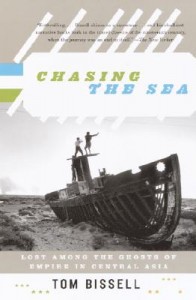 Yeah. And they were also written from a place of pretty powerful loneliness and unhappiness too. And I don’t think those two things are at all contradictory. The more deranged confidence you display in a work of writing, probably the less comfortable you are in your own skin in some weird way. I can barely even stand to reread a lot of my earlier pieces, because I just see in them this smarmy little shit-head know-it-all.
Yeah. And they were also written from a place of pretty powerful loneliness and unhappiness too. And I don’t think those two things are at all contradictory. The more deranged confidence you display in a work of writing, probably the less comfortable you are in your own skin in some weird way. I can barely even stand to reread a lot of my earlier pieces, because I just see in them this smarmy little shit-head know-it-all.
Well, you were very young. And you were publishing a lot.
Well, I’d been writing pretty seriously and devotedly from age nineteen on. I scarcely had a drink of alcohol from age nineteen to about twenty-eight. I didn’t smoke weed at all. I didn’t socialize all that much.
You just wrote. You smoked writing.
Yeah. I was like a white knight of literature throughout most of my twenties. And so by the time I started getting stuff going, I had this . . . backlog of stuff I’d been writing. I think I wrote the short story “God Lives in St. Petersburg” when I was twenty-three years old. And I read that story now and I can’t decide if it’s really good or if I was the world’s greatest bullshitter at that point.
Does it matter?
No, it probably doesn’t, fundamentally.
We’re talking about writing. In your piece “Writing about Writing about Writing,” you have that great line: “The how-to-write genre begins to feel less like an effort to instruct and more like a rear-guard action to reinforce the garrisons of their authors’ own slaughtered confidence.” How’s your confidence doing?
It’s not great. You can’t work on a book for as long as I’ve been working on this Apostles book and feel like you’re at the height of your powers. But I’ve been writing a lot. I wrote with an actor named Greg Sestero this whole other book that comes out in October about the film The Room. So by any metric I know I’ve been on another pretty wildly productive tear. But I don’t feel confident about it. Here’s the thing: when you’re young, you worry, Is this good enough to get published? And that’s a really big anxiety. But now that I’ve published a bunch, I realize that publication is no form of real validation. Or it’s a very facile form of validation. Now I worry, Does it say something true? Is it just wanking? Is it just endless, mind-numbing wanking? I don’t have any confidence anymore that what I’m writing is interesting to anyone but me. And I guess if there’s a nice thing about getting older as a writer, it’s sort of coming to peace with the fact that maybe it’s okay if it’s only interesting to me. I don’t really feel like I’m being very eloquent on this point, so ask me a different form of this question.
Well, naively, I guess my response would be, isn’t publication one answer to that? If someone is willing to buy it, isn’t that feedback that answers that question?
Yeah, but it ultimately doesn’t really help you fall asleep at night. I’ve had several books come out—a couple of which I’ve been really, really proud of—that didn’t have any commercial impact at all. Which is hard to deal with after a while. I think Extra Lives has outsold all my other books by a factor of five by this point, and, before you congratulate me, Extra Lives didn’t burn up the bestseller list by any stretch of the imagination! I’m happy with that book, but I don’t think it’s even close to the best book I’ve written. So ultimately, with these questions about the worth of your writing, you have to develop a different kind of confidence. You have to develop a confidence that you get up the next day after you’ve written a lot and you look it over and you don’t want to throw up or die. The confidence is just to have faith in yourself that you’ll get there.
Writing gets harder the older you get. I haven’t heard enough people talk about this. Your bag of tricks gets smaller every passing year. You get more and more bored by the stultifying fog in your own brain. I’ve caught myself repeating myself, going back to the same kind of “clever” description, the same kind of little trick. And when I catch other writers doing it, writers I love, when I bust them for a recycled line, I get mad at them—I used to get mad at them, I should say. Now I think, Shit, I’m glad he or she does it too! I don’t feel particularly confident right now, and that’s probably a good thing. The less confident my writing has gotten, I think, the more human the voice it has. The early pieces were very performative. My writing is less performative now. I’m happy about that.
It’s funny. As a novice writer, so much hinges on that confidence. On the day when you’ve got it, things are great, and when you don’t it’s—
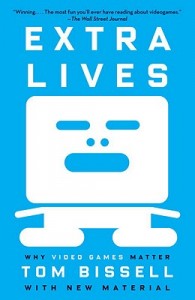
The worst. Here’s the thing. I sensed it while you were asking. My biggest frustration working with really talented young writers is this very question, the confidence problem. And it’s a crippler. Because I’ve seen so many talented young writers just tie themselves into knots over something like sending a story out. And for whatever reason, I never felt that. I always sent my stuff out—and felt horrible when it was rejected. Yet it always struck me as fundamentally crazy that people didn’t instantly recognize I was good.
That sounds like confidence.
I guess it was confidence, but really it was more this: My fear of being thought bad, which was real, was not as strong as my desire to be recognized as good. Being fearful as a writer is a real, real problem. It’ll just shut you down. It means you’re your own worst enemy, and writers have enough enemies, real and imagined, as it is. And so you have to make the decision to be as vulnerable in real life as, ideally, you’re being on the page. Those are the same two things, the same thing. It’s just a matter of saying, “Fuck it. How much does this mean to me?” Because you will never get anywhere being frightened. So, are you frightened? Identify right now the nature of what you’re worried about. Is it that people aren’t going to think you’re smart or talented?
That’s not the concern. I think I’m talented in my small way and I’m smart in my small way. So it’s not that I don’t want to put myself out there. It’s that I haven’t yet written the thing I want to put out there.
Well, that’s different.
On one level it’s different, on another level, though, it’s just a mind-trick.
I was going to say. It is a trick. What’s the thing you’ve written that you’re happiest with? Do you have a story?
There are stories that probably at one time I was happy with. I look at them now and think, “Ugh.”
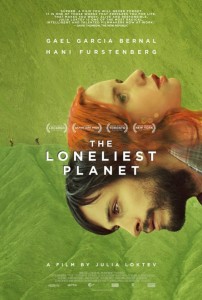 For what it’s worth, I almost threw out “Expensive Trips Nowhere,” the story that was made into the Gael García Bernal movie last year. I wrote and rewrote it for six months while I was working a publishing job. I didn’t think it was very good and had decided not to pursue it. I was complaining about it to my friend Noah, who’s a really good reader. And Noah said, “Just let me see it.” So I gave it to him and he said, “Dude, what’s your problem with it? It’s good!” I realized that all the problems I had with it were problems that I created in my mind. I had psyched myself out. The first magazine I sent it to took it, and ten years later someone makes a movie out of it, which is completely bizarre. That story was six months of torment, one submission, and then this completely miraculous thing about the film. So let that be a lesson. Try to divorce the archeology of all your struggles with something from the objective quality of it. Send your stuff out and see what happens.
For what it’s worth, I almost threw out “Expensive Trips Nowhere,” the story that was made into the Gael García Bernal movie last year. I wrote and rewrote it for six months while I was working a publishing job. I didn’t think it was very good and had decided not to pursue it. I was complaining about it to my friend Noah, who’s a really good reader. And Noah said, “Just let me see it.” So I gave it to him and he said, “Dude, what’s your problem with it? It’s good!” I realized that all the problems I had with it were problems that I created in my mind. I had psyched myself out. The first magazine I sent it to took it, and ten years later someone makes a movie out of it, which is completely bizarre. That story was six months of torment, one submission, and then this completely miraculous thing about the film. So let that be a lesson. Try to divorce the archeology of all your struggles with something from the objective quality of it. Send your stuff out and see what happens.
Last question. I knew you in your forgotten bachelor days. Has being in a happy relationship affected your confidence?
Oh my god yes. Everyone who knew me from the nebulous pre-Trisha period—people who genuinely liked me—have said things like, “You know, you’re just so much more pleasant now. You just seem so relaxed.” And it’s true. I wake up in the morning delighted to be with this person I love more than anything in the world. I go to bed at night happy. I just adore her, and she’s made me as happy as I’ve been in my life. I’m not always convinced that it helps the writing, mind you, but it’s an awesome trade-off. I’ve done some of my best writing from positions of real desperation and sadness and loss and anger. Trying to figure out a way to make a baseline happiness inform your work—that’s been tricky. But it gets easier every day. The point is, I would never in a zillion years trade molten lava prose for a happy home life, which is what I now have, and treasure.
Further Links and Resources:
- Read Unclassifiable: Part I of James Pinto’s interview with Tom Bissell.
- Read the original version of Tom’s essay about visiting Jim Harrison in Outside.
- Find examples of Tom’s earlier writing with “Unflowered Aloes” from The Boston Review and “Protesting All Fiction Writers!” from The Believer.
- Watch Tom discuss his 2010 book, Extra Lives: Why Video Games Matter at Harvard Book Store.
- Here’s the trailer for The Loneliest Planet, adapted from Tom’s story “Expensive Trips Nowhere.”



